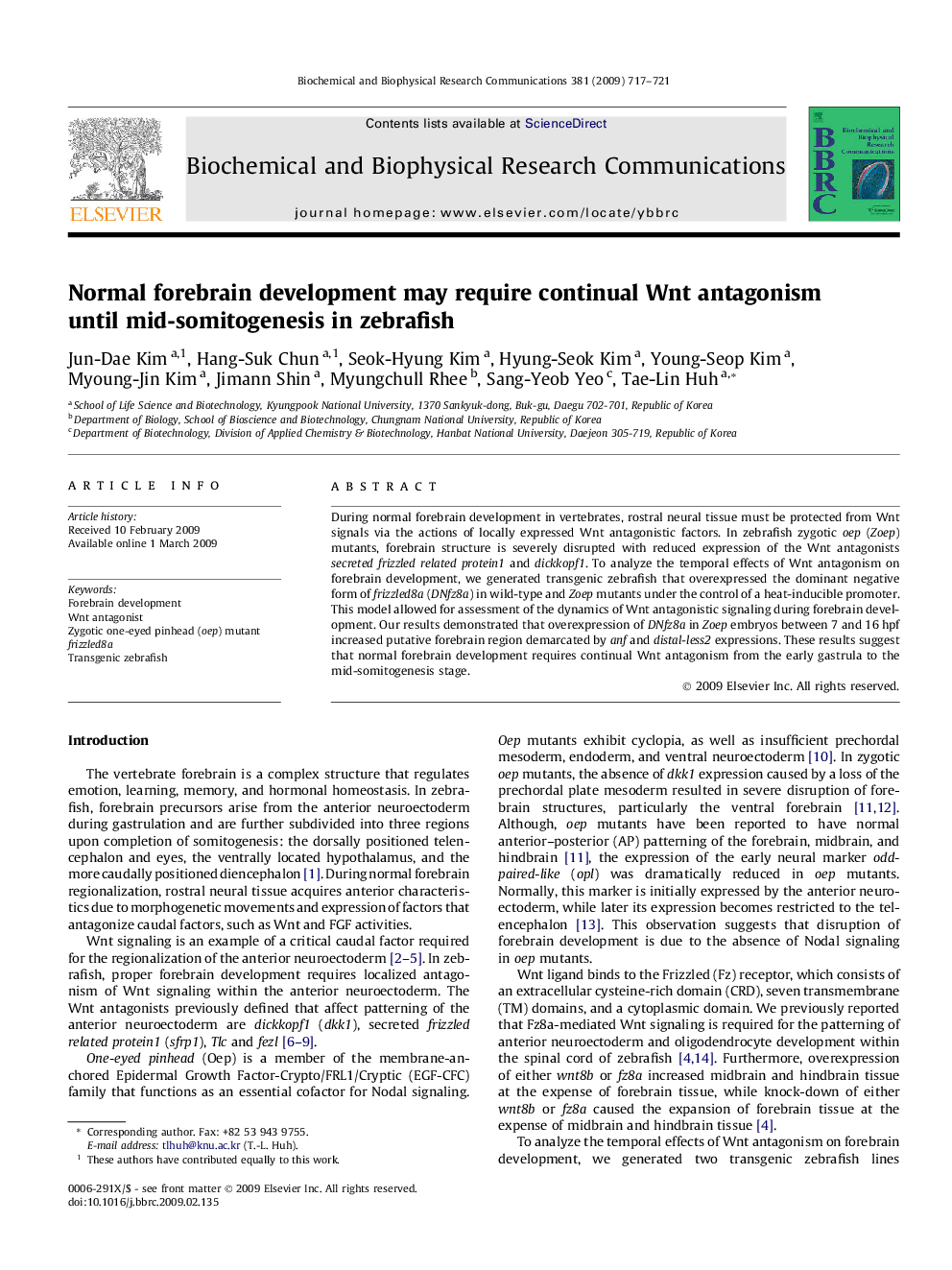| Article ID | Journal | Published Year | Pages | File Type |
|---|---|---|---|---|
| 10766136 | Biochemical and Biophysical Research Communications | 2009 | 5 Pages |
Abstract
During normal forebrain development in vertebrates, rostral neural tissue must be protected from Wnt signals via the actions of locally expressed Wnt antagonistic factors. In zebrafish zygotic oep (Zoep) mutants, forebrain structure is severely disrupted with reduced expression of the Wnt antagonists secreted frizzled related protein1 and dickkopf1. To analyze the temporal effects of Wnt antagonism on forebrain development, we generated transgenic zebrafish that overexpressed the dominant negative form of frizzled8a (DNfz8a) in wild-type and Zoep mutants under the control of a heat-inducible promoter. This model allowed for assessment of the dynamics of Wnt antagonistic signaling during forebrain development. Our results demonstrated that overexpression of DNfz8a in Zoep embryos between 7 and 16Â hpf increased putative forebrain region demarcated by anf and distal-less2 expressions. These results suggest that normal forebrain development requires continual Wnt antagonism from the early gastrula to the mid-somitogenesis stage.
Related Topics
Life Sciences
Biochemistry, Genetics and Molecular Biology
Biochemistry
Authors
Jun-Dae Kim, Hang-Suk Chun, Seok-Hyung Kim, Hyung-Seok Kim, Young-Seop Kim, Myoung-Jin Kim, Jimann Shin, Myungchull Rhee, Sang-Yeob Yeo, Tae-Lin Huh,
